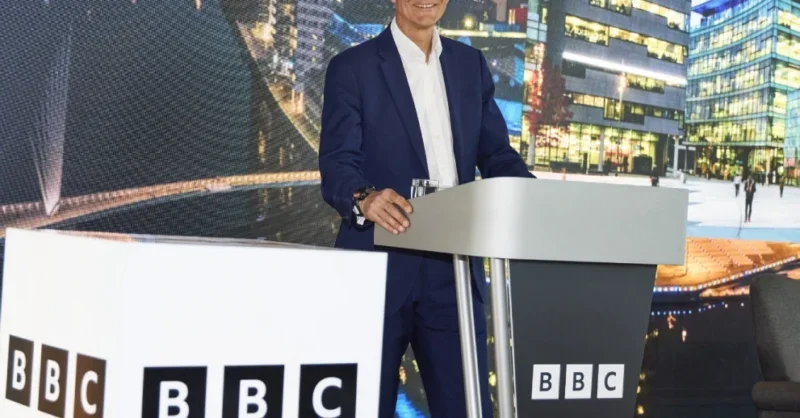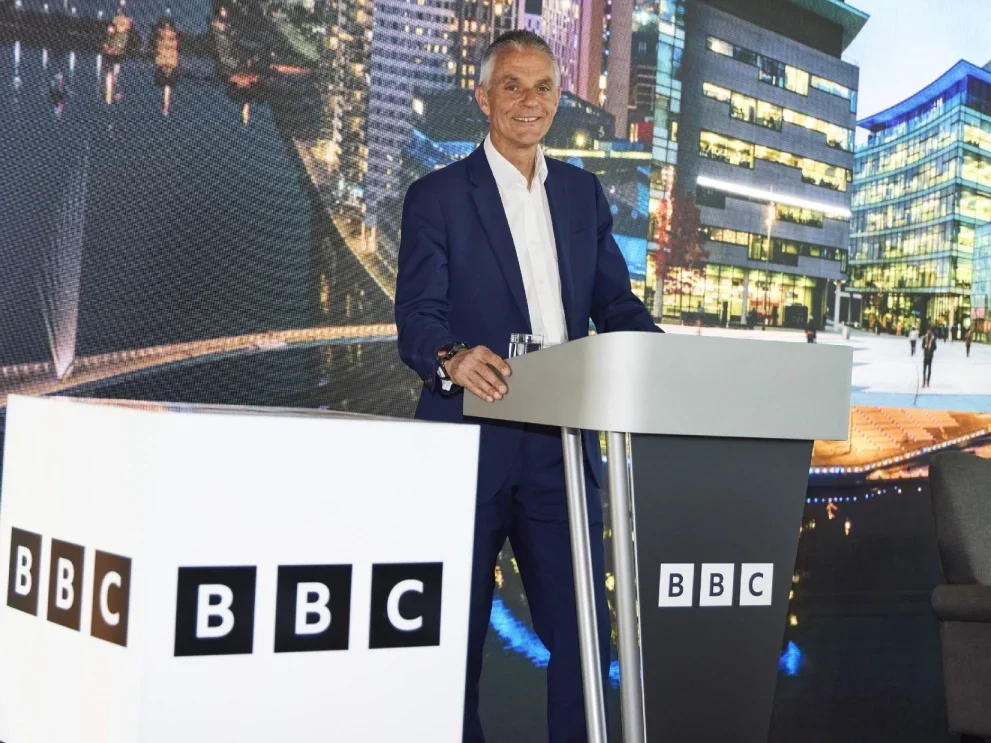Physical Address
304 North Cardinal St.
Dorchester Center, MA 02124
Physical Address
304 North Cardinal St.
Dorchester Center, MA 02124


Director General Tim Davie has revealed plans to expand the local Democracy Reporting service outside its current focus on local authorities.
In a speech in Salford on Wednesday, Davie said BBC Want to expand the system to include “health authorities, police and crime commissioners and deep analysis of regional mayors” with the coverage that continues to be shared with partner publishers.
Davie added: “But we can be more radical to support others. Can we” open sources “all our local video, news and audio content to make it also possible for local media partners to access it?
“Can we use the scale and range for BBC’s platforms to provide more prominent connection to commercial suppliers?
“Of course, we will consult partners before we confirm plans but we need a local new news market.”
The Media partners for the next LDR contract periodwho drove from July 1 for two and a half years until the end of 2027 and the current BBC charter, was announced last week.
The system is funded by the BBC for local news premises around the UK to hire 165 journalists to focus on council meetings and other democratic institutions in their areas.
According to the new contracts, REACH (83 reporters), NewSquest (36) and National World (24) are the largest partners in the system, but four media organizations will start managing LDRs for the first time: Baylis Media, Tindle Newspapers, Highland News & Media and Community Radio Station Northam.
Davie held the announcement in a speech To put a vision for the BBC to be a “catalyst to build trust”.
He said that the extension of the LDR schedule would do this by “helping (ing) to support our democracy from the roots up”.
Davie also said: “Our ambition is to strengthen our local journalism while building support for the broader local news ecology that faces serious pressure.
“We want to write a new chapter in our partnership with the broader local news sector.”
Rival commercial publishers have in recent years criticized the BBC’s online local news expansion and said it is crushing competition. They have Warned repeatedly that they are struggling to compete with the BBC picking up the same stories on their ad -free website that is often ranked higher in Google.
Ofcom said at the end of last year that “Increased BBC Online Local news is part of headwinds facing local publishers And there may be some local areas where the BBC view shifts commercial viewing ”.
But it also said that “had not found significant evidence that the BBC side -side is shifting commercial publishing points”.
In his speech, Davie also said that the BBC can help “make Britain a global leader in trusted information” by doubled to fight disinformation.
To do this, he said the BBC will “dramatically” increase its news output on Youtube (where it currently has 18 million subscribers) and tictoc (where it have eight million).
Davie said this will “ensure that we have a stronger position in the middle of the noise. We are already making progress. We are the Largest news account globally on InstagramBut we want to distribute new technology and skills to create more content that work on these platforms while stimulating links to our services. “
He added that the BBC would build on verify, which was launched in 2023 With a team of more than 60 journalists and the goal of building the audience’s confidence by showing how its journalists know what they are reporting is true.
The company already said in March that it would go from mostly publication of responsive, ad-hoc fact controls To an “” always an “offer, with daily digital production and a dedicated commitment to us coverage”.
Davie said: “… We have to build verify over more services globally.
“We also want to strengthen the audience when seeking answers-to combine agentic AI with reliable BBC journalism to create a new gold standard facts-control tool. Our goal is to work globally with other public services to ensure a healthy core of fact-based news.
“And we want to open our journalistic processes so that people can see how we work; radical transparency that drives increased confidence.”
Davie continued to say that the BBC has a plan to “supercharging” world service by “regionalizing our content in important English -speaking markets and increasing our offer in the four major languages”.
But he noted the need for political support for the world service: “With proper state funding, we believe that we can gain significant benefits to the UK.”
Davie said of the BBC as a whole because it is facing uncertainty about the future of the license fee: “When it comes to funding, we do not ask the status quo. We want modernization and reform. But thus we must protect the universities.
“All financing models that have been moved in the debate have their advantages and disadvantages. But some as advertising or subscription do not manage to build a universal trusted public service.
“In addition, we keep an open mind. And we continue to actively explore all alternatives that can make our financing model fairer, more modern and more sustainable.
“When it comes to it By financing the world service, we need help. It has never been a more important time to invest in this invaluable national asset. We believe that the UK should be ambitious if its future – and the government should invest for significant growth, not survival. “
E-mail pged@pressgazette.co.uk To point out mistakes, enter History Tips or submit a letter for publication on our “Letters Page” blog